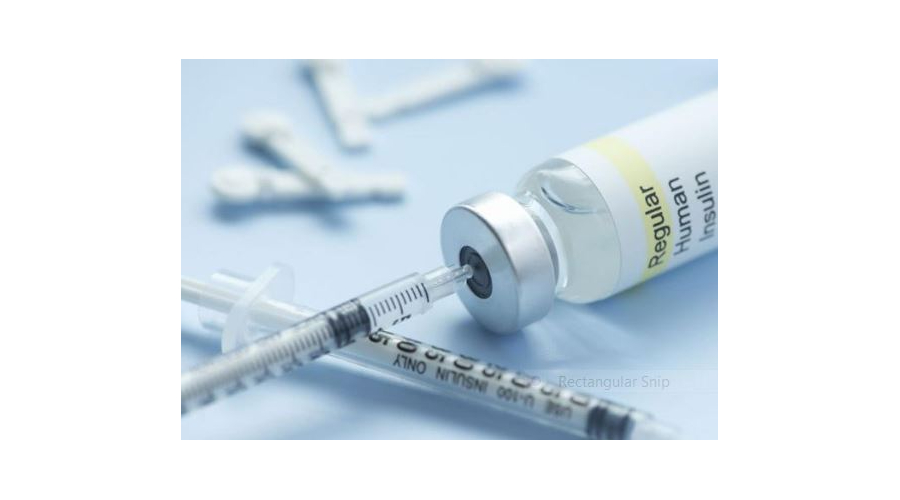27 July 2022
By Ferozan Mast
High blood sugar—known as hyperglycemia—is associated with type 2 diabetes and can be very dangerous if left untreated. "As medical science has advanced, there has become a big push to get tighter and tighter control of blood sugar levels," says John P. Cunha, DO, FACOEP. "The highs and lows needed to be smoothed out to get as close to normal physiology as possible. This has become the mantra for diabetic care. Just like an elite athlete who is always training, the person with diabetes always needs to be working to maintain normal blood sugar levels." Here is how to reduce high blood sugar—fast. Read on—and to ensure your health and the health of others, don't miss these Sure Signs You've Already Had COVID.
1
Be Mindful of Carbs and Sugar
Diet is very important for keeping blood sugar levels in the safe zone. "Save soda pop and juice for when you need to treat low blood sugar," saysMegan Asterino-McGeean, BSN, RN, CDCES. "Our blood sugars mimic our carbohydrate intake. Eating too many carbs increases sugar levels. That's why consistency is key. Be choosy. Nutrient-dense, high-fiber, complex carbs are a better everyday choice than simple processed carbs. Processed carbs don't occur naturally and tend to be located in the middle of the grocery store."
2
Manage Stress
Constant stress and anxiety can spike blood sugar levels thanks to the stress hormone cortisol. "In healthy people, cortisol fluctuates naturally throughout the day, spiking in the morning and falling at night," says Joshua J. Joseph, MD, endocrinologist and researcher at The Ohio State Wexner Medical Center's Diabetes and Metabolism Research Center. "But in participants with type 2 diabetes, cortisol profiles that were flatter throughout the day, had higher glucose levels. Most people with Type 2 diabetes know the importance of exercising regularly, eating a healthy diet, and getting plenty of rest. But stress relief is a crucial and often forgotten component of diabetes management. Whether it's a yoga class, taking a walk or reading a book, finding ways to lower your stress levels is important to everyone's overall health, especially for those with type 2 diabetes."
3
Get Your Sleep!
Getting the right amount of quality sleep (seven hours a night for healthy adults) is incredibly important for helping keep blood sugar down. "So, firstly, you're releasing less insulin when you're sleep-deprived," says Matthew Walker, PhD, director of the Center for Human Sleep Science at the University of California, Berkeley. "But what little insulin you do release is not instructing those cells to open up the channels to take away the monsoon of the glucose that's flowing in the channels of the body. So on both sides of the glucose regulation, on the release of insulin, to instruct cells to absorb glucose, and on those cells themselves to be sort of instructed by insulin, those cells became less sensitive to the insulin signal. And so, as a consequence, your overall ability to deal with glucose became far more degraded, and blood glucose remained higher, which sets you on a profile of looking pre-diabetic."
4
Keep Moving Throughout the Day
Getting some movement throughout the day, no matter how small the amount, is highly effective in lowering blood sugar. "It's important to be active, but that can be tricky depending on your lifestyle or any health conditions you have," says Asterino-McGeean. "So aim to move more than yesterday. If that's all you can do, it still counts. If you can't do 30 minutes at a time, focus on five- or 10-minute increments instead. Try that once a day. Move up to twice and then three times each day when you can tolerate more. If you're starting a new exercise routine, talk with your provider, physical therapist or trainer first to make sure you're doing it safely."
5
Take Your Insulin
"The fastest way to bring down your blood sugar (glucose) levels is to take insulin, but this should only be done as prescribed by a doctor," says Dr. Cunha. "The next quickest way to lower blood sugar is to exercise. But if your blood glucose is above 240 mg/dl, you should check your urine for ketones. If ketones are present, exercise may not be recommended."
Source – Yahoo News
Yours sincerely
Frank Short



